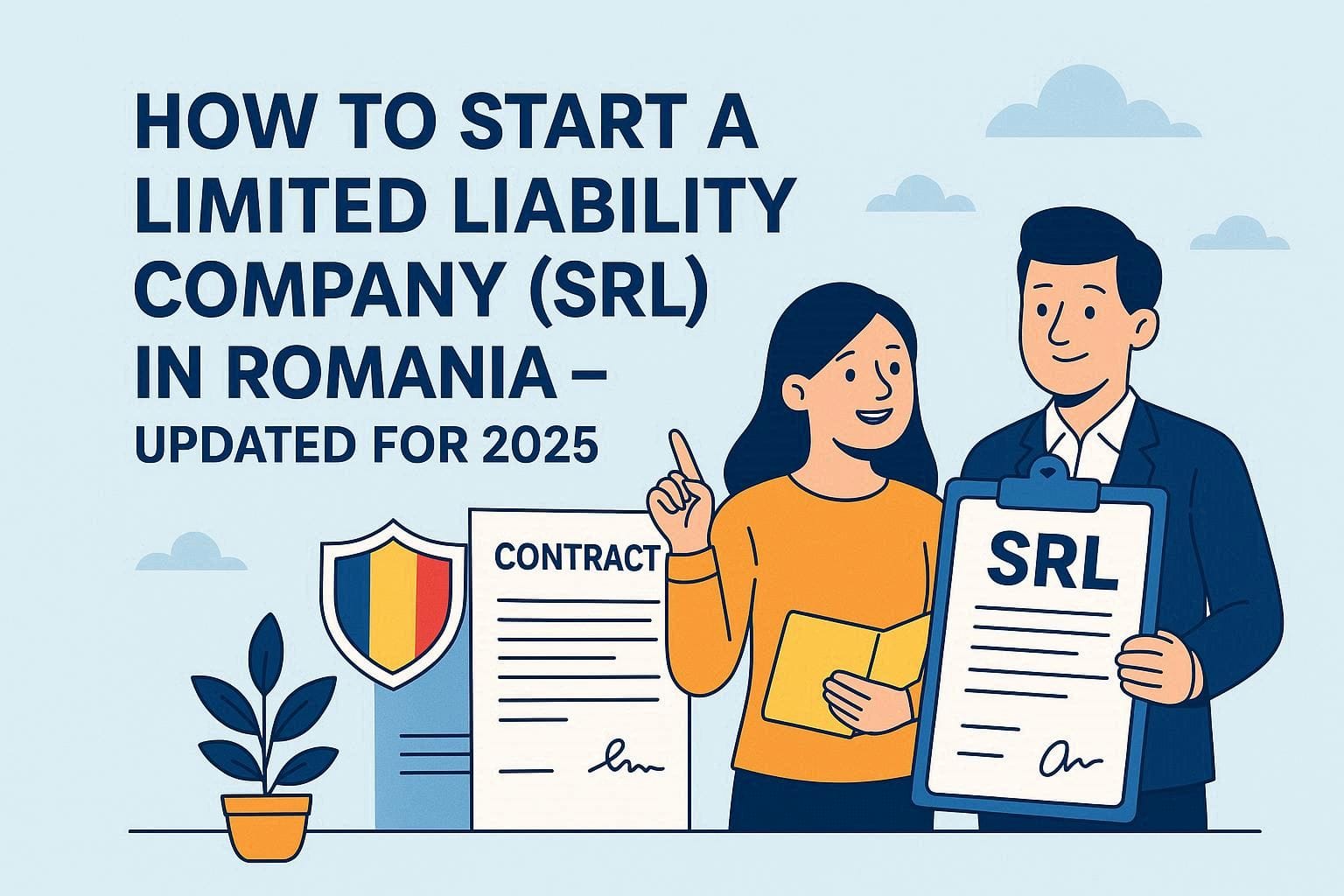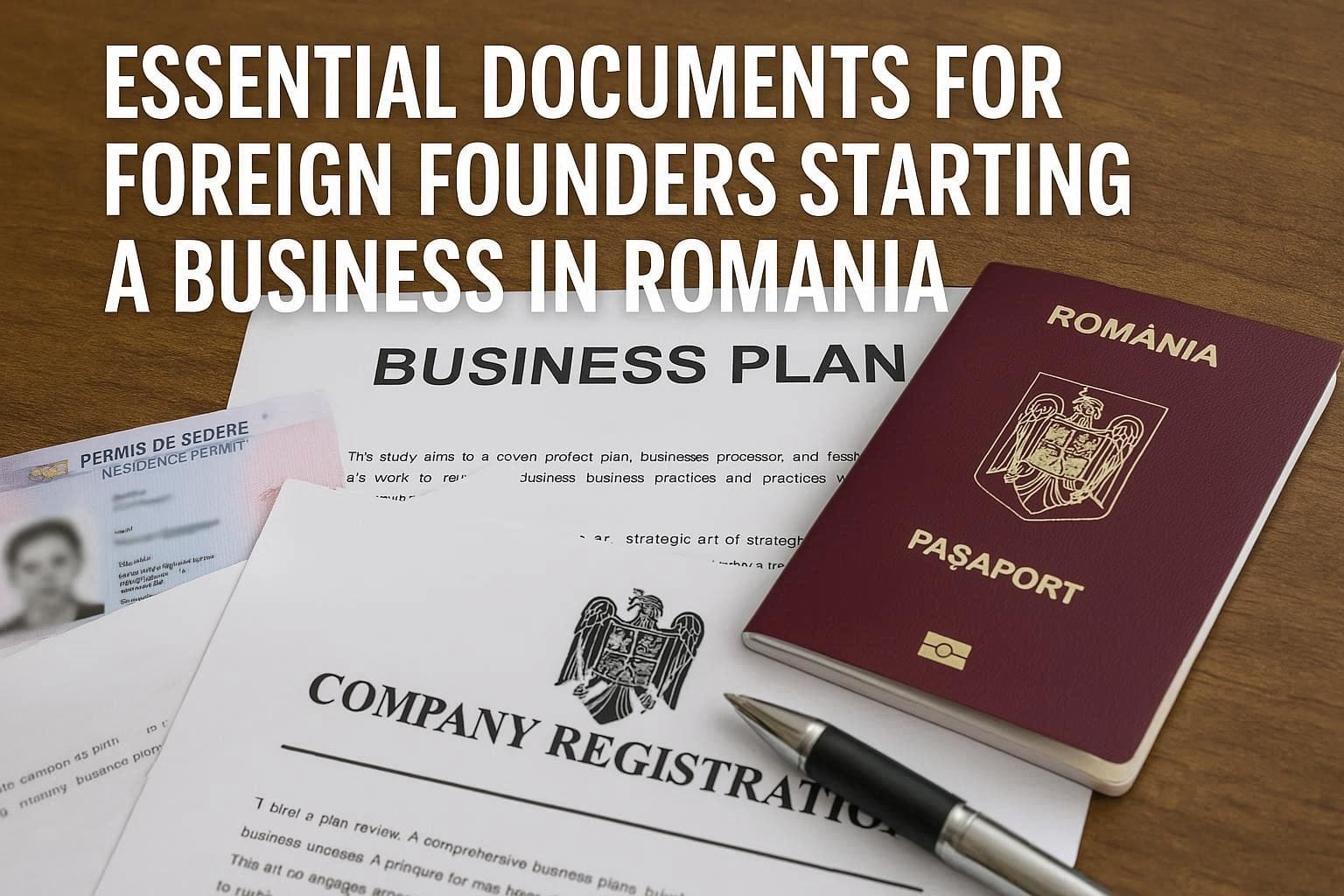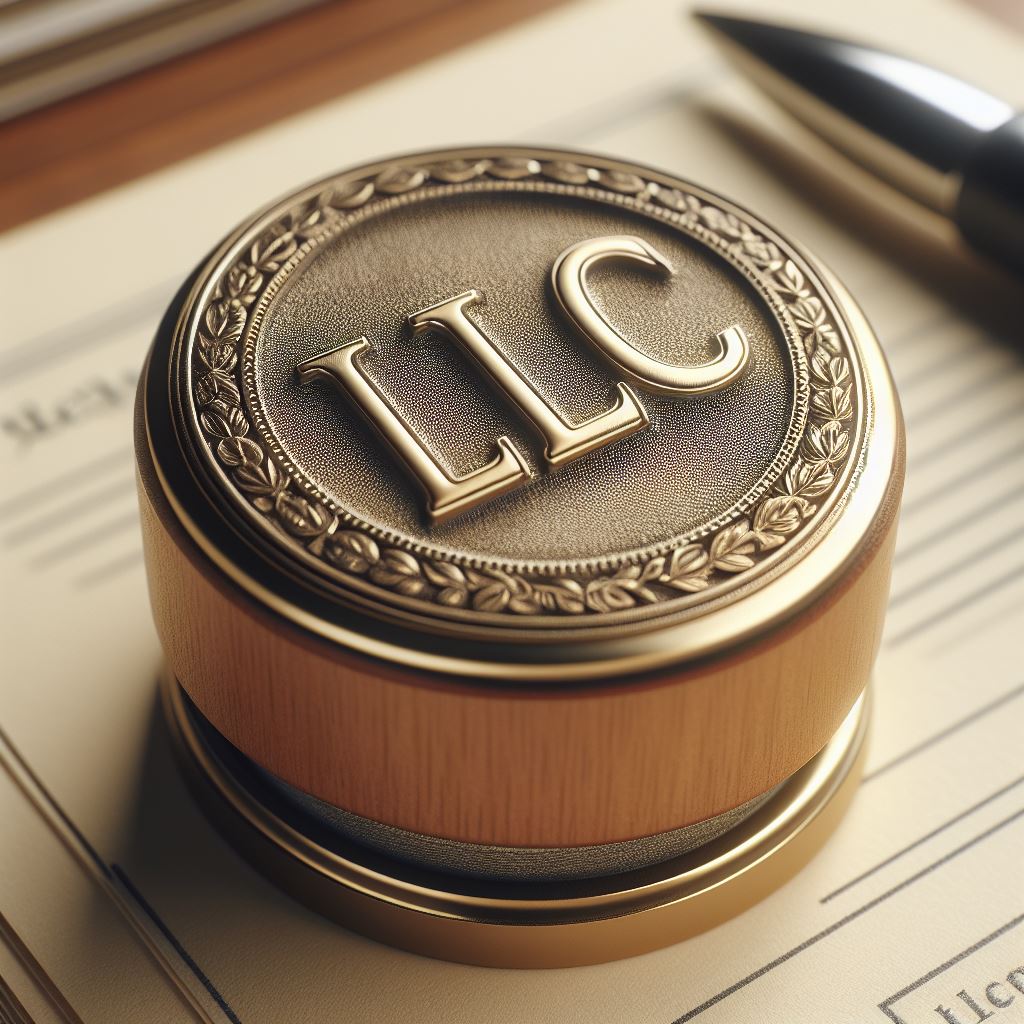Minority Shareholder Rights in Romanian Companies: Legal Protections and Limits
Can minority shareholders in Romanian companies protect their investments against decisions by controlling shareholders?
This question is vital for thousands of investors who contribute capital and oversight but own less than fifty percent of shares.
Minority shareholder rights in Romanian companies are a delicate balance between business efficiency and investor protection.
The legal framework, including Law No. 31/1990 on Commercial Companies, the Civil Code, and court precedents, offers safeguards.
These protections are for investors without voting control but with essential capital and market credibility.

Shareholder protection laws in Romania acknowledge the unique vulnerabilities of minority investors.
Majority shareholders might pursue strategies that benefit them at the expense of smaller shareholders.
The legal system counters these risks with mandatory information rights, judicial remedies, and procedural safeguards for fair treatment within corporate structures.
EU standards significantly influence Romanian legislation on minority investor rights. European directives dictate how Romanian companies must treat all shareholders, regardless of ownership percentage.
These protections go beyond basic voting rights to include access to corporate information, dividend distributions, and legal recourse against decisions harming minority interests.
A Romanian law office specializing in corporate matters offers critical guidance for minority shareholders.
Professional assistance helps investors understand their rights, evaluate corporate actions, and pursue remedies when necessary.
For expert legal services combining Romanian expertise with international standards, contact office@theromanianlawyers.com.
Key Takeaways
- Romanian law defines minority shareholders as those holding less than 50% of company shares with specific legal protections
- Law No. 31/1990 on Commercial Companies provides the primary framework for shareholder rights and corporate governance,
- Minority investors possess information rights, voting privileges, and access to judicial remedies against unfair treatment,
- EU directives strengthen minority investor protections through enhanced transparency and governance standards
- Professional legal counsel helps minority shareholders understand and exercise their rights effectively,
- Romanian courts offer multiple remedies including resolution annulment, compensation, and forced company dissolution.
Understanding the Legal Framework for Minority Shareholders in Romania
The protection of minority shareholders in Romania is rooted in detailed business legislation.
This legislation sets out clear guidelines for corporate governance.
It ensures that even those with smaller stakes receive fair treatment and have a say in company decisions.
The level of protection depends on the company type and the percentage of shares held.
Law No. 31/1990 on Commercial Companies as the Primary Legislation
Law 31/1990 is the cornerstone of corporate law in Romania, covering all private companies and outlining fundamental shareholder rights.
This legislation, backed by the Civil Code, strikes a balance in corporate governance.
It deals with essential topics like shareholder meetings, voting, access to information, and legal recourse for minority shareholders.

Distinction Between Limited Liability Companies (SRL) and Joint Stock Companies (SA)
Romanian companies law 31/1990 distinguishes between two main types of commercial entities.
Each has its own governance structure:
| Company Type | Minimum Capital | Shareholder Rights | Meeting Requirements |
|---|
| SRL (Limited Liability) | 1 RON | All shareholders can propose agenda items | Simple majority decisions |
| SA (Joint Stock) | 90,000 RON | 5% threshold for special rights | Qualified majority for major decisions |
Definition and Thresholds for Minority Shareholders
In Romania, minority shareholders are those with less than 50% of shares.
The law sets specific thresholds for enhanced rights.
In joint stock companies, those with at least 5% can call for a general meeting and suggest agenda items.
Even single-share owners in SRLs have significant rights, including the right to challenge unlawful decisions in court.
Fundamental Information Rights and Corporate Transparency
Information access is key to protecting shareholders in Romania.
The Romanian Company Law outlines detailed rights for shareholders.
These rights allow them to track company activities and make informed choices.
This ensures that even small investors can monitor their investments and hold management accountable.
Access to Financial Statements and Corporate Records
Romanian law ensures all shareholders can access critical company documents.
This includes annual financial statements, board meeting minutes, and corporate registers.
It’s vital for protecting minority shareholders to review balance sheets, profit and loss statements, and audit reports.
Companies must keep these records at their registered office and make them available during business hours.

Rights to Request Explanations from Directors
Shareholders also have the right to ask directors for explanations.
They can pose questions about business operations, financial transactions, or strategic decisions.
Directors must respond clearly within 15 days.
This strengthens shareholder protection in Romania by ensuring management is accountable.
Notification Requirements for Shareholders’ Meetings
Meeting notification is another essential aspect of protecting minority shareholders in Romania.
Companies must announce general meetings at least 30 days in advance through official channels.
Notifications must include:
- Complete meeting agenda,
- Proposed resolutions text,
- Voting procedures,
- Documentation access details.
These rules prevent majority shareholders from making surprise decisions that could harm minority shareholders.
Courts actively enforce these rules, often annulling resolutions passed without proper notification.
Minority Shareholder Rights in Romanian Companies
Romanian corporate law offers vital mechanisms for minority shareholders to protect their interests.
These legal safeguards are key in preventing corporate abuse and ensuring fairness for all shareholders.
This fairness is not based on the size of their ownership stake.
Challenging Unlawful Resolutions Under Article 132
Article 132 of Law No. 31/1990 gives shareholders the power to challenge decisions that break the law or company statutes. This provision is a cornerstone in Romania’s fight against minority shareholder oppression.
Shareholders can seek court annulment of resolutions under these conditions:
- Decisions breach Romanian commercial law
- Articles of association are violated
- Individual shareholder rights face infringement
- Private interests override company welfare
Legal Standing and Time Limits for Court Actions
Any shareholder can challenge board decisions in Romanian courts.
The law sets a strict deadline—actions must be filed within 15 days from the date the resolution is published in the Monitorul Oficial al României, Part IV .
This tight timeframe demands constant vigilance and quick action against minority shareholder oppression.

Protection Against Abusive or Self-Interested Decisions
Romania’s corporate abuse protection goes beyond just procedural issues.
Courts also look at the substance of decisions affecting minority shareholders:
| Type of Abuse | Examples | Available Remedies |
|---|
| Financial Oppression | Withholding dividends despite profitability | Court-ordered distributions |
| Dilution Tactics | Unjustified share capital increases | Resolution annulment |
| Exclusion Practices | Barring minorities from strategic decisions | Governance reforms |
| Self-Dealing | Undisclosed related-party transactions | Transaction reversal |
Romanian courts are active in reviewing cases of challenging majority decisions.
Judges determine if resolutions are for legitimate business reasons or just to benefit the majority at the expense of minorities.
Voting Rights and Meeting Participation
Protecting voting rights for minority shareholders is key in corporate governance in Romanian companies.
Romanian corporations must follow specific legal rules to ensure all shareholders, regardless of their share percentage, have a say in corporate decisions.
The law on voting rights in Romanian corporations sets clear thresholds.
This allows minority groups to influence major decisions.
Shareholders with at least 5% of shares can call for general meetings.
This ensures minority shareholders’ rights are protected, even without a majority.

Voting rights in Romanian corporations vary between Limited Liability Companies (SRL) and Joint Stock Companies (SA).
In SRLs, every shareholder has more rights. They can:
- Propose agenda items for general meetings,
- Contest decisions deemed unlawful,
- Exercise corporate voting rights Romania guarantees by statute.
Shareholders in Romania face some limitations.
Amendments to Law 31/1990 now allow electronic or correspondence voting, particularly in joint-stock companies (SAs)—especially when listed or when permitted under the articles of association.
For SRLs, remote voting remains subject to stricter interpretation and typically requires express provisions in the company statute.
Major corporate decisions need qualified majorities to protect minority shareholders’ rights.
Changes to company charters, liquidation, and major asset sales need at least three-quarters of voting shares approval.
Recent reforms have introduced cumulative voting.
Cumulative voting (permitting concentration of votes on a single board candidate) remains entirely optional, made possible only where provided in the articles of association.
While corporate governance codes for listed companies might encourage it, no legal mandate exists.
This strengthens minority shareholders’ voting power in board elections and improves their role in corporate governance.
Legal Remedies for Minority Oppression and Abuse
In Romanian companies, minority shareholders facing corporate minority oppression have legal recourse.
The courts aim to safeguard small investor rights from majority abuse.
This includes withholding dividends, excluding from decision-making, and unfair share dilution.
Remedies span from financial compensation to restructuring the company.
Financial Compensation and Annulment of Resolutions
Romanian courts can annul resolutions that harm minority investors.
Claims often stem from preferential treatment of directors through secret deals.
Shareholders receive financial compensation when corporate governance is breached.

Company Dissolution and Enforced Exit Mechanisms
In severe cases, courts may dissolve the company.
They assess if operations are justified amidst ongoing conflicts.
Fair compensation is ensured in minority squeeze-out procedures, with judicial oversight.
| Exit Mechanism | Trigger Conditions | Court Requirements |
|---|
| Forced Buyout | Systematic exclusion from management | Fair market valuation |
| Company Dissolution | Irreparable deadlock | No viable alternatives |
| Squeeze-Out Rights | 95% ownership threshold (for listed companies) | Independent price assessment.
In unlisted companies, squeeze-out rights are not statutory and must be defined through shareholder agreements or pursued through court action in cases of abuse | Independent price assessment |
Judicial Administrator Appointments in Governance Deadlocks
Courts appoint judicial administrators in governance deadlocks.
This addresses conflicts where squeeze-out procedures fail.
Administrators have temporary power to resolve issues, ensuring compliance with regulations.
Dividend Rights and Corporate Distribution Policies
Minority shareholder rights in Romanian companies are crucial for ensuring equitable treatment and protection against potential abuses by majority shareholders.
Under Romanian company law, minority shareholders often face challenges related to voting influence, dividend distribution, and participation in corporate governance.
The articles of association play a central role in defining the procedures for passing shareholder resolutions and transferring shares, which can significantly affect minority influence in the general meeting of shareholders.
In mergers, demergers, or corporate reorganizations, minority shareholders are entitled to receive fair treatment, including compensation where applicable, particularly if their shareholding is affected by structural changes or exit scenarios.
Although share buybacks are legally permitted under strict conditions, they are not a typical tool for minority exits.
The Romanian courts have acknowledged the importance of safeguarding minority shareholder rights, and affected shareholders may bring legal actions to challenge unlawful decisions or seek remedies under Law No. 31/1990 on Companies.
The Trade Register (ONRC) ensures public access to essential information such as company capital, registered shareholders, and changes to governing documents, contributing to transparency for both limited liability companies (SRL) and joint stock companies (SA).
As Romania continues to align its corporate governance framework with EU directives and international standards, the development of more effective enforcement mechanisms remains key.
Ensuring meaningful participation and protection for minority shareholders is essential to building trust and accountability in the Romanian business environment.
Shareholder Agreements and Contractual Protections
Shareholders’ agreements in Romania offer vital protections beyond what’s mandated by law.
These agreements fortify minority positions with specific clauses addressing common issues in Romanian business structures.
Tag-Along Rights and Cumulative Voting Provisions
Tag-along rights safeguard minority investors during majority shareholder sales.
They ensure minority shareholders can sell at the same price and terms as the majority.
Cumulative voting rights, on the other hand, boost board representation by allowing concentrated voting on certain candidates.
| Protection Type | Key Benefits | Application in Romania |
|---|
| Tag-Along Rights | Equal sale conditions | Commonly included in Romanian shareholder agreements—especially in joint ventures, private equity deals, or closely held companies—to protect minority investors during ownership changes |
| Cumulative Voting | Enhanced board representation | Mandatory for listed companies |
| Drag-Along Rights | Facilitates complete sales | Standard in PE investments |
Preemptive Rights in Share Transfers and Capital Increases
Preemptive rights in Romania safeguard shareholders from dilution.
These rights apply during capital increases and share transfers, ensuring ownership percentages remain proportional.
Exit Options for Minority Investors
Minority investors have exit options, including mandatory buyouts triggered by certain events.
Romanian agreements typically include valuation mechanisms for fair pricing.
Derivative Actions and Corporate Litigation Rights
Romanian law empowers minority shareholders to defend corporate interests through derivative actions.
These actions allow shareholders to sue on behalf of the company when directors act against its best interests.
This is a key part of resolving disputes in corporate settings, ensuring management is held accountable.
Derivative actions in Romania have strict rules.
Shareholders must prove that directors have not pursued rightful claims against wrongdoers.
The law allows for actions against directors for breaches of duty, conflicts of interest, and transactions that favor certain shareholders over the company.
Romanian courts assess both the process and fairness of minority shareholder lawsuits.
They check if claims are for the company’s benefit or personal gain.
This ensures only valid disputes are addressed, preventing frivolous lawsuits.
| Type of Claim | Legal Standing Requirements | Time Limits |
|---|
| Breach of Fiduciary Duty | 5% ownership in SA, 10% in SRL | 3 years from discovery |
| Conflict of Interest Transactions | Any shareholder regardless of stake | 6 months from transaction |
| Corporate Asset Misappropriation | 5% ownership minimum | 5 years from occurrence |
Despite its benefits, enforcing these rights in Romania is challenging.
Courts demand robust evidence and legal expertise in local commercial law.
Success in shareholder disputes hinges on grasping procedural details and presenting strong cases that clearly show corporate harm.
Evolution of Romanian Corporate Governance Standards
Corporate governance in Romania has seen major changes with the shift to a market economy.
The reopening of the Bucharest Stock Exchange in 1995 was a key moment.
It opened up the Romanian capital markets after a 50-year hiatus.
This event laid the groundwork for modern shareholder protection laws and opened doors for both local and international investors.
Impact of EU Directives on Shareholder Protection
Romania’s path toward European Union membership led to significant legislative improvements.
The Pistor index, a measure of investor protection, jumped from 13 points in 1996 to 17.75 between May 2002 and November 2006.
EU directives brought in essential protections for minority shareholders in Romanian joint stock companies:
- Mandatory takeover bid thresholds protecting minority investors,
- Independent share registries ensuring transparent ownership records,
- Strict insider trading prohibitions,
- Enhanced disclosure obligations for major transactions.
Bucharest Stock Exchange Requirements for Listed Companies
The exchange introduced a three-tier listing system with increasing strictness.
First-tier companies face the most demanding corporate governance standards.
These standards aim to boost transparency and accountability.
They also enhance minority protections through mandatory disclosure and regular financial reports.
Recent Legislative Developments and Reform Initiatives
Law No. 441/2006 brought significant changes to minority protections in Romanian Companies.
It reduced the quorum needed for certain decisions to one-quarter.
This change slightly lowered the protection index to 17.25.
Yet, recent reforms have tackled key areas like cumulative voting, compulsory takeover offers, and detailed transaction disclosure.
These steps reflect the growing demand for better governance from investors in Romania.
Conclusion
Romanian corporate law, as outlined in Law No. 31/1990, provides a robust framework for minority shareholder rights.
This legislation ensures that minority shareholders have access to corporate information and can participate in meetings.
They also have the right to challenge unfair resolutions and seek judicial remedies when their rights are violated.
These protections align with EU standards, solidifying Romania’s standing in the global business arena.
Despite these legal safeguards, minority shareholders face practical hurdles in Romanian corporate governance.
Companies often distribute minimal dividends, limiting returns for minority investors.
Share issuance restrictions also hinder market oversight, which could discipline management decisions.
Minority shareholders must remain vigilant, documenting governance failures and asserting their statutory rights.
The dynamic nature of shareholder protection laws in Romania necessitates ongoing monitoring of legislative changes and court interpretations.
Seeking professional legal representation is essential for minority shareholders facing complex corporate disputes.
A skilled Romanian lawyer is well-versed in both the statutory framework and practical strategies to protect minority interests.
Whether it’s pursuing annulment actions, seeking compensation, or negotiating exit arrangements, experienced counsel is vital.
For expert guidance on shareholder disputes and protection strategies, contact a reputable Romanian law office at office@theromanianlawyers.com.
The future of minority shareholder protection hinges on ongoing legislative refinement and judicial enforcement.
As Romania’s corporate landscape evolves, the balance between majority control and minority rights must be constantly adjusted.
Collaborating with knowledgeable lawyers in Romania ensures minority shareholders can effectively exercise their rights.
This contributes to enhanced corporate governance standards.
For tailored advice and protection strategies for your investments, contact experienced Romanian lawyers at office@theromanianlawyers.com.
FAQ
What percentage of shares qualifies someone as a minority shareholder under Romanian law?
Romanian corporate law defines minority shareholders as those owning less than 50% of shares.
This rule applies to both Limited Liability Companies (SRLs) and Joint Stock Companies (SAs).
Specific rights and thresholds can differ between these company types.
How long do minority shareholders have to challenge unlawful corporate resolutions in Romania?
Article 132 of Law No. 31/1990 states that minority shareholders must start legal actions within 15 days after a resolution is adopted.
This tight deadline is critical for shareholders to act quickly when they spot legal breaches or decisions that harm their rights.
What information rights do minority shareholders have in Romanian companies?
Romanian Company Law ensures minority shareholders can access corporate records like financial statements and meeting minutes.
They have the right to ask directors about company operations and must be informed about shareholders’ meetings and decisions.
Denying access to this information can lead to legal action.
Can minority shareholders in Romanian SRLs propose agenda items for general meetings?
Yes, in Limited Liability Companies (SRLs), any shareholder can suggest agenda items and challenge decisions, regardless of their shareholding percentage.
This gives them more participation rights than in Joint Stock Companies (SAs), where at least 5% is needed to request a general meeting.
What remedies exist for minority shareholders facing dividend withholding in profitable Romanian companies?
Romanian courts can order financial compensation or annul abusive resolutions.
In extreme cases, they might dissolve the company if majority shareholders consistently withhold dividends despite profitability.
Studies show companies with majority shareholders over 50% pay lower dividends, making judicial remedies key for minority protection.
How do tag-along rights protect minority shareholders in Romania?
Tag-along rights in shareholder agreements allow minority shareholders to sell their shares at the same price and conditions as majority stakeholders.
Can minority shareholders bring derivative actions against directors in Romanian companies?
Yes, Romanian law allows minority shareholders to take legal action on behalf of the company against directors who fail to pursue claims.
They can seek compensation for damages caused by directors’ breach of duties or conflicts of interest.
Courts assess both procedural and substantive fairness.
What voting threshold is required for fundamental corporate decisions affecting minority shareholders?
Romanian law demands a 3/4 qualified majority for key decisions like charter changes, liquidation, and major asset sales.
This supermajority ensures minority shareholders can block significant corporate changes that might harm their interests.
How has EU membership affected minority shareholder protections in Romania?
Romania’s EU accession boosted corporate governance standards, with the Pistor index increasing from 13 in 1996 to 17.25 in 2008.
EU directives introduced takeover bid thresholds, independent registries, insider trading bans, and enhanced disclosure, strengthening minority investor rights.
What are preemptive rights and how do they protect minority shareholders from dilution?
Preemptive rights prevent dilution by allowing minority shareholders to buy new shares proportional to their existing holdings during capital increases or share transfers.
Romanian courts uphold these rights, ensuring that minority positions are not unfairly diluted without participation opportunities.
What are the rights of minority shareholders in Romanian companies?
Minority shareholders in Romanian companies have several rights established by law that provide them protection in the company’s governance.
These rights include the ability to attend and vote in the general meetings of shareholders, access to the company’s financial information, and the right to propose resolutions.
Additionally, minority shareholders may request the court to intervene if their rights are violated or if they believe the company is not acting in its best interests.
How does the law protect minority shareholders during a merger?
The law provides specific protections for minority shareholders during a merger in Romania.
Minority shareholders have the right to fair compensation for their shares if they do not agree with the merger.
The company must publish the merger details in the official gazette and provide adequate information to all shareholders, ensuring transparency throughout the process.
Furthermore, minority shareholders may challenge the merger in court if they believe it violates legal provisions or the company’s articles of association.
Can minority shareholders influence decisions made at the general meeting of shareholders?
Yes, minority shareholders have the right to influence decisions made at the general meeting of shareholders.
They can vote on shareholder resolutions and may request to hold extraordinary general meetings if they hold at least a certain number of shares as established by the articles of association.
This ensures that even minority shareholders can contribute to significant decisions affecting the company, including changes in the share capital or the transfer of shares.
What is the significance of the trade registry for minority shareholders?
The trade registry plays a crucial role in protecting the rights of minority shareholders in Romanian companies.
It serves as the official record of the company’s structure, including the number of shareholders, their contributions to the share capital, and any changes to the company’s articles of association.
Minority shareholders can verify the company’s compliance with corporate governance rules and ensure that any resolutions or actions taken are legally binding and in their best interests.
What legal forms of companies exist that impact minority shareholder rights?
In Romania, there are two main types of companies that impact minority shareholder rights: joint-stock companies and limited liability companies.
Each legal form has specific regulations regarding shareholder rights, governance, and share capital.
For instance, in a joint-stock company, minority shareholders may have greater rights to information and participation in decision-making compared to a limited liability company.
Understanding these distinctions is essential for minority shareholders to navigate their rights effectively.






























